Best Tea for Digestion
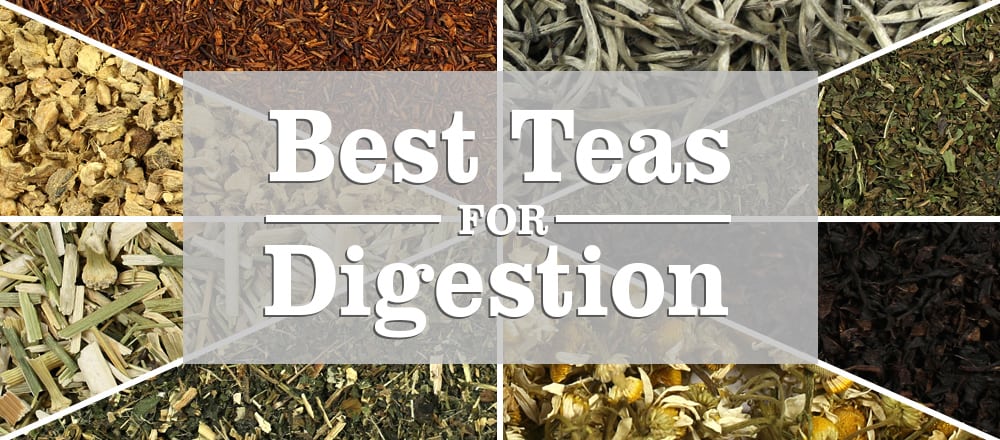
Problems with digestion are far from uncommon. Many of us might experience acid reflux, bloating, cramping, inflammation or even Irritable Bowel Syndrome (IBS). Is there an easy, fix-all solution? Not exactly. However, Tea might, indeed, help. But what is the best Tea for digestion?
This article will walk you through your options. We will talk about six Teas, in particular, and what they can do for your digestive system. Best of all, we will back these claims with the latest scientific research. Although many studies are only in their preliminary stages, the evidence is nevertheless promising. Let’s explore together.
Table of Contents
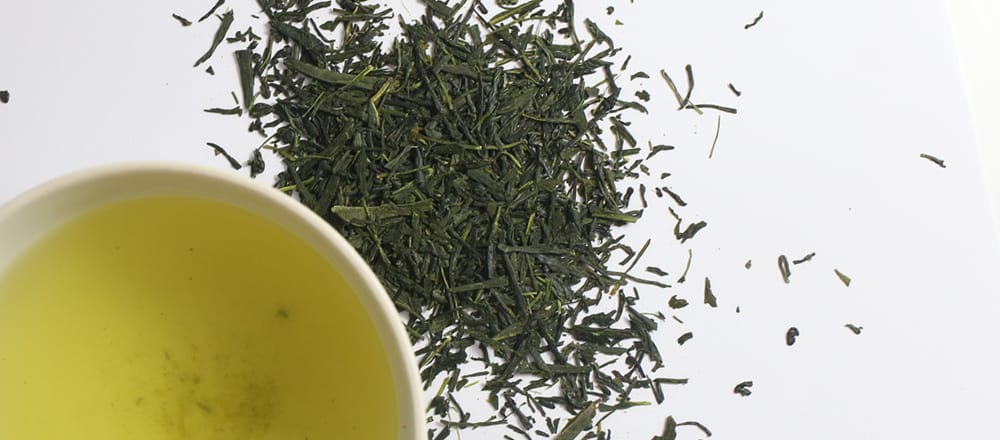
Is Green Tea Good for Digestion
This type of Tea, like all ‘real’ Teas, comes from the Camellia sinensis plant. After harvesting, the leaves arrive at the factory for processing. Here, it is oxidised very little, meaning it maintains much of its natural chemical structure and taste. When brewed, Green Tea most commonly has a grassy flavour but may also have floral, vegetal, herbaceous or seaweed notes.
But how and why, exactly, is this a Tea good for digestion? Researchers at the University of Cincinnati College of Medicine, USA, have the answers. They discovered that a particularly beneficial antioxidant called epigallocatechin-3-gallate (EGCG) might help with colitis. This is an inflammatory disorder that disrupts digestive health.
According to the evidence, EGCG may hamper the signalling pathways involved in colitis inflammation. It’s essential to note, however, that research is preliminary. That means that until we know more, it’s best to exercise caution. The Kent and Sussex Tea and Coffee Company will always advise talking to a doctor before drinking Green Tea for digestion and colitis.
Learn more in our blog, “Benefits of Green Tea”.
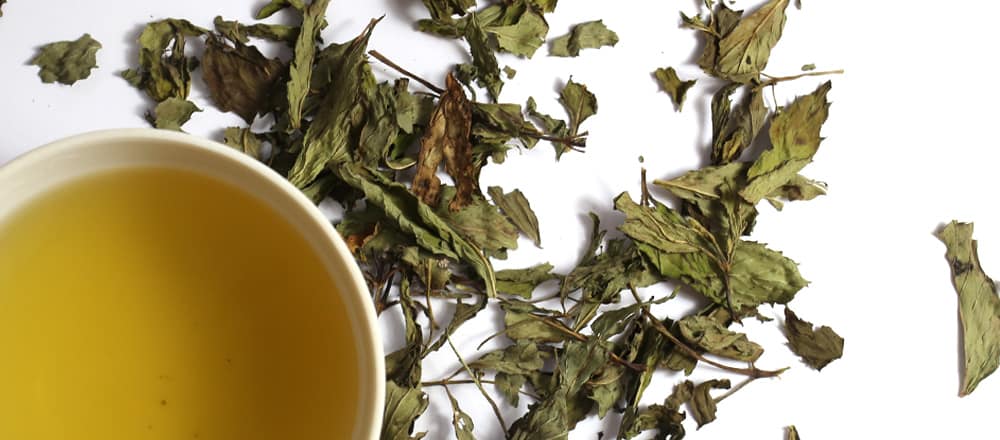
Peppermint Tea Digestive Health
This is perhaps the best known and most loved Herbal Tea in the world. It comes from the aromatic, rhizomatous perennial plant botanically known as Mentha piperita. The plant is a natural hybrid of watermint (Mentha aquatica) and spearmint (Mentha spicata). When brewed, it has, as you’d expect, a strong minty flavour with herbaceous notes.
How and why is it considered a best Tea for digestion? Research suggests this tea can help with IBS. This is a condition that affects the digestive system. Common symptoms include stomach cramps, bloating, diarrhoea and constipation. Typically, IBS is a lifelong problem, but there are some remedies that might offer temporary relief.
Enter Peppermint Tea benefits. Drinking it frequently may soothe the intestines, relieve abdominal pain and reduce bloating. A recent study found that Peppermint Tea relaxed gastrointestinal tissue in animal bodies. There are also other studies showing the positive effects of Peppermint Tea for IBS. Again, however, it’s always important to listen to your doctor’s advice.
Learn more in our blog, “Peppermint Tea Benefits”.
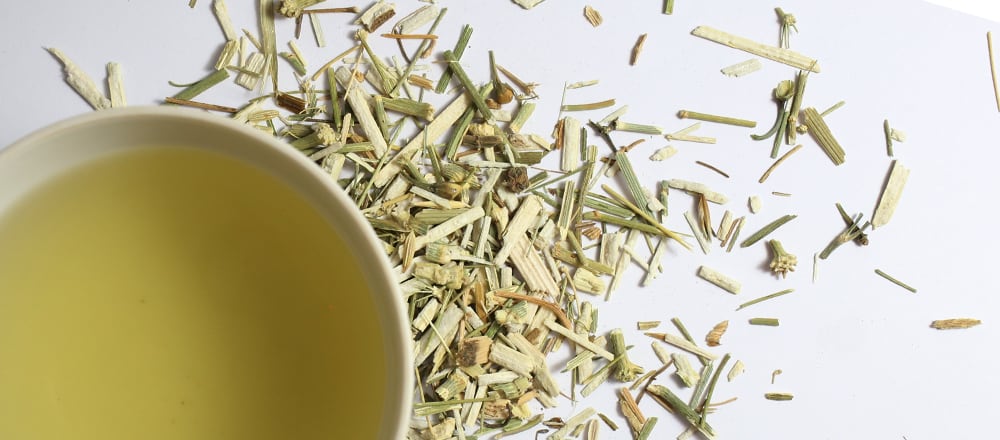
Fennel Tea for Digestion
This Herbal Tea comes from the hardy, aromatic, perennial Foeniculum vulgare plant belonging to the Apiaceae family. It grows yellow flowers and feather-like leaves. Though native to the Mediterranean, it now flourishes in a multitude of climates around the world. When brewed, it has a distinct aniseed-like flavour with bold, sweet, herbaceous notes.
Historically, Traditional Chinese Medicine (TCM) has long recognised Fennel Tea’s ability to improve digestion. Scientifically, we now know that it can, like Peppermint Tea, help with IBS. It can also, like Green Tea, help with colitis.
A 2012 review published by the International Journal of Food Sciences and Nutrition can explain how and why. It found that fennel increased spontaneous gastric motility and gastric acid secretions in animal models. The author of the review, Marco Valussi, stated that:
“A herbal combination including fennel eliminated intestinal pain by 95% in test subjects who had chronic, nonspecific colitis.”
Learn more in our blog, “Fennel Tea Benefits”.
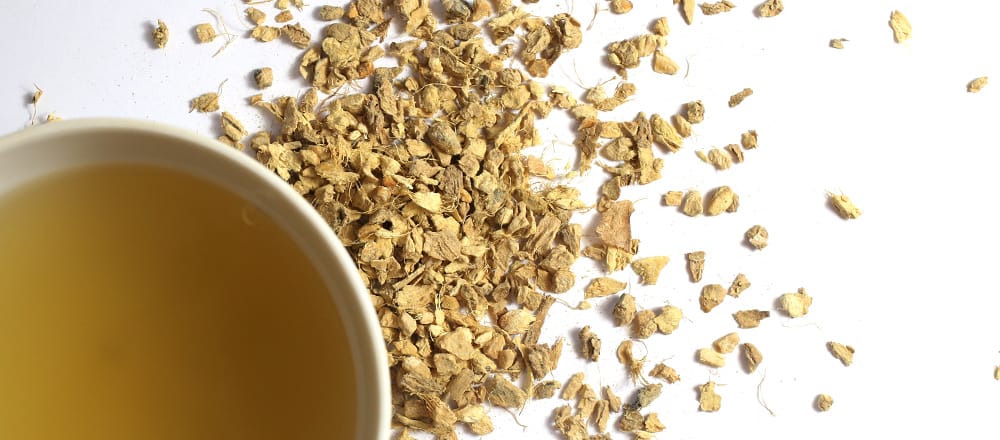
Ginger Tea and Digestion
This much-loved spice, known botanically as Zingiber officinale, is a member of the Zingiberaceae family. Its close relatives include cardamom and turmeric. The most beneficial component of this plant, however, is underground. This is the rhizome, which most people will know as the ginger root. When brewed, it has bold peppery notes with zesty overtones.
When it comes to Ginger Tea for digestion, you’d be hard-pressed to find a better brew. Confucius (551-479 BCE) was one of the first to recognise its outstanding ability to help with acid reflux. Today, we have proof. Indeed, we now know that the phenolic compounds in this beverage can relieve gastrointestinal irritation and lessen gastric contractions.
But that’s not all. Its anti-inflammatory properties likewise benefit the gastrointestinal tract. Its calmative properties, meanwhile, have a relaxing effect on this system. Many choose to drink this Tea to reduce intestinal gas and flatulence. Some even note its ability to alleviate bloating. Ultimately, drinking Ginger Tea to settle the stomach has many benefits.
Learn more in our blog, “Ginger Tea Benefits”.
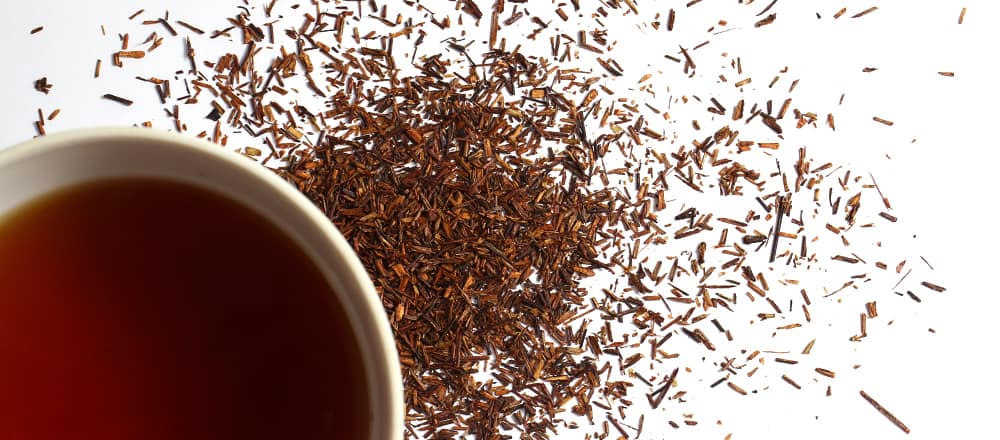
Does Rooibos Tea Help Digestion
This is a herb that grows exclusively in the Cederberg region of South Africa. It comes from the perennial Aspalathus linearis plant, a member of the Fabaceae (Legume) family. The indigenous peoples of the region have used Rooibos Tea in their daily lives for centuries. Today, little has changed apart from the fact that we have scientific evidence for many of these benefits.
One such benefit is, of course, it being considered a best Tea for digestion. First, it contains antioxidants and anti-inflammatory properties capable of reducing inflammation. Its antispasmodic properties, meanwhile, can help alleviate abdominal pain such as stomach cramps by activating potassium ions throughout the body.
Furthermore, a study published in the Basic & Clinical Pharmacology & Toxicology Journal has yet more evidence in support. It discovered that compounds such as quercetin, orientin and vitexin relaxed the digestive system while, overall, relieving feelings of discomfort.
Learn more in our blog, “Rooibos Tea Benefits”.
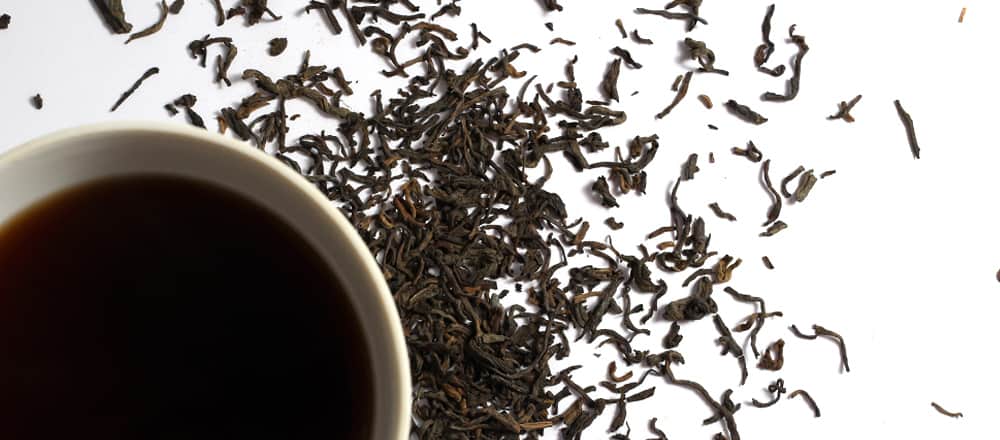
Pu erh Tea Digestion
Let’s now return to so-called “real” Tea. Pu erh is a type of Black Tea that has undergone a unique processing method. While at the factory, the leaves experience prolonged bacterial and fungal fermentation. Essentially, this manipulates conditions to simulate a natural ageing process. The result is a Tea with a highly-prized complexity, depth and smoothness.
Similar to ginger, TCM has long admired Pu erh when it comes to it being a Tea good for digestion. This is because of its microorganisms created during its processing. This, in turn, increases bacterial flora in the body, thus improving digestive health.
But TCM isn’t the only form of medicine supporting such claims. Indeed, modern science now suggests that Pu erh stimulates the gastrointestinal system by speeding up the digestive process. It can, among other qualities, help with indigestion, constipation and diarrhoea.
Learn more in our blog, “Pu erh Tea Benefits”.

Conclusion
When it comes to the best Tea for digestion, it depends on the particular ailment or area of discomfort. Choose Green Tea for aiding colitis, for example. Peppermint Tea, meanwhile, is a Tea good for digestion and, in particular, IBS. Then there is Fennel, which can help with both conditions. Ginger Tea, on the other hand, works well against inflammation and acid reflux.
But that’s not all. The antispasmodic properties of Rooibos cannot be overstated. Alternatively, there is Pu erh, which contains unmistakably beneficial microorganisms capable of helping with numerous complaints. Whatever you decide upon, you’ve decided well with us. The Kent and Sussex Tea and Coffee Company stock all of the aforementioned brews online and in-store.

 Loose Leaf Tea
Loose Leaf Tea Pyramids
Pyramids Tea Bags
Tea Bags Africa
Africa Assam
Assam Ceylon
Ceylon Chinese
Chinese Darjeeling
Darjeeling European
European Indian
Indian Japan
Japan Nepal
Nepal South East Asia
South East Asia Ayurveda Tea
Ayurveda Tea Black Tea
Black Tea Chai Tea
Chai Tea Flowering Tea
Flowering Tea Fruit Tisanes
Fruit Tisanes Green Tea
Green Tea Herbal Tea
Herbal Tea Matcha Tea
Matcha Tea Oolong Tea
Oolong Tea Organic Tea
Organic Tea Pu erh Tea
Pu erh Tea Rooibos Tea
Rooibos Tea White Tea
White Tea Asian Coffee
Asian Coffee Caribbean Coffee
Caribbean Coffee Central American Coffee
Central American Coffee South American Coffee
South American Coffee Coffee Blends
Coffee Blends Decaffeinated Coffee
Decaffeinated Coffee Espresso Coffee
Espresso Coffee Ethically Sourced Coffee
Ethically Sourced Coffee Flavoured Coffee
Flavoured Coffee Organic Coffee
Organic Coffee Single Origin Coffee
Single Origin Coffee Chocolate 1
Chocolate 1 Chocolate 2
Chocolate 2 Chocolate 3
Chocolate 3 Chocolate 4
Chocolate 4 Chocolate 5
Chocolate 5 Chocolate 6
Chocolate 6 Chocolate 7
Chocolate 7 Chocolate 8
Chocolate 8 Chocolate 9
Chocolate 9 Loose Tea Filters
Loose Tea Filters Tea Accessories
Tea Accessories Tea Bricks
Tea Bricks Tea Caddies
Tea Caddies Tea Caddy Spoons
Tea Caddy Spoons Tea Gift Ideas
Tea Gift Ideas Tea Infusers
Tea Infusers Tea Strainers
Tea Strainers